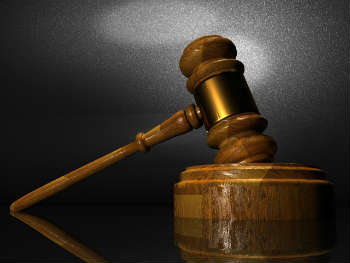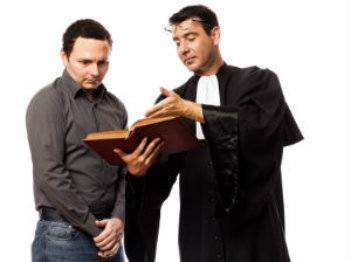Are you consider filing for bankruptcy due to overwhelming debt? Jeanne Marie Cella, Esq., an experienced Chapter 13 bankruptcy lawyer in Pennsylvania, can help you decide if this powerful legal option is right for you.
What Is Chapter 13 Bankruptcy?
Chapter 13 bankruptcy is a type of debt relief that protects your house, your car, and other assets. It will stop a sheriff sale or stop a car repossession immediately. Additionally, it will give you an opportunity to catch up on your back payments by spreading out your payments over 3 or 5 years, even when your creditors do not want to negotiate with you.
In fact, while you are under Chapter 13 bankruptcy protection, your creditors are prohibited from contacting you at all. Your assets are safe. Filing Chapter 13 will stop creditors from harassing, suing, or taking your assets.
Even if you are not saving a house or a car, filing Chapter 13 is valuable if you have a lot of unsecured debt and you do not qualify for Chapter 7 bankruptcy for one reason or another. The difference between these two types of bankruptcy being, in simple terms, the fact that Chapter 7 does not permit you to enter into a repayment agreement. Ultimately, under Chapter 13 you will pay what you can afford as determined by bankruptcy law and the deal that bankruptcy attorneys are able to secure on your behalf.
Resolve Unsecured Debts with Chapter 13 Bankruptcy For Better Credit
There is no getting around damaged credit.
Credit reports are ‘pulled’ when you attempt to rent or buy a house, lease a car, get insurance, and more. Even employers check the credit histories of potential hires before offering positions to candidates.
Credit scores dictate what doors are open to us as members of society – and what doors will stay firmly shut. If your credit is in trouble, it is highly recommended that you contact an attorney for bankruptcy even when you are seeking debt relief from unsecured debts.
Unsecured Debt Relief Via Chapter 13
You may not have a house to keep out of foreclosure, but if you ever want a chance at owning a home down the line, then your credit needs to be cleaned up. One of the best ways of accomplishing this is by resolving unsecured debts.
What Is Unsecured Debt?
Unsecured debt is debt that isn’t secured by the property. One of the most common types of unsecured debt is credit card debt.
Many unsuspecting consumers can be lured into opening new credit cards by department and big-box stores with introductory offers. Before they know it, they’ve racked up thousands in debt and are unable to pay it back.
The issuers of these credit cards, legally known as your creditors, would need to file suits against you to recover any money owed to them. Filing Chapter 13 bankruptcy prevents creditors from taking this action and may reduce the overall amount of your debt, due to fewer expenses incurred from court costs and legal fees. Additionally, through Chapter 13 bankruptcy and with the help of a bankruptcies attorney, you may author a repayment plan that makes your creditors whole over a three-to-five-year period.
Consumer Rights Under Chapter 13
According to the United States Courts:
”Chapter 13 bankruptcy is also called a wage earner’s plan. It enables individuals with regular income to develop a plan to repay all or part of their debts. Under this chapter, debtors propose a repayment plan to make installments to creditors over three to five years.”
Chapter 13 bankruptcy is regularly used by individuals at risk of losing their homes. However, non-homeowners with regular income, who are trying to build their credit should consider Chapter 13 bankruptcy as a sustainable approach to repairing bad credit.
How Can A Chapter 13 Bankruptcy Attorney In PA Help You?
By working with a bankruptcy lawyer who can guide you through this complicated legal process in an efficient manner, filing for bankruptcy can provide some or all of the following benefits:
- You will have no contact with your creditors during the lifetime of your bankruptcy.
- Chapter 13 bankruptcy may lower your average payment.
- Protects your co-signers from creditors collecting on consumer debts. Chapter 13 bankruptcy denies your creditors from holding third parties liable for payment.
- Chapter 13 bankruptcy may act as a consolidated loan plan that collects the money for the creditors via a Chapter 13 Trustee who pays the creditors for you.
- Chapter 13 lets you reschedule secured debts (not your home’s mortgage) and lengthen the time period you’ll have to repay the debt.
- For those trying to save their homes from foreclosure, Chapter 13 can spread the delinquent mortgage payments throughout the life of your repayment plan.
If you have regular income and want to repair your credit and build for the future, then filing for Chapter 13 bankruptcy is a logical choice. The money saved from interest fees and late payment penalties alone is an incentive to learn more about Chapter 13 bankruptcy.
Avoiding Judgments From Creditors
It’s important to note that just because you have unsecured debt, it doesn’t mean that it is uncollectible.
 Creditors can file costly judgments against your credit for seven years in Pennsylvania. Some judgments can be renewed ending up being a scar on your credit report for many years. Prevent these damages from being carved into your credit and act proactively by considering Chapter 13 bankruptcy to resolve your unsecured debts.
Creditors can file costly judgments against your credit for seven years in Pennsylvania. Some judgments can be renewed ending up being a scar on your credit report for many years. Prevent these damages from being carved into your credit and act proactively by considering Chapter 13 bankruptcy to resolve your unsecured debts.
If you ever want to own a home or a business, it is crucial that you sort out your consumer and unsecured debts. Filing for Chapter 13 bankruptcy is an option for renewing the life of your credit while repaying your creditors at a sustainable rate.
Don’t be afraid of bankruptcy. Sometimes people need to start over and that is why these bankruptcy laws are in place.
Free Chapter 13 Bankruptcy Consultations
if you are considering filing for bankruptcy in the Media, Delaware County area, bankruptcy attorney Jeanne Marie Cella, Esq. is just the right attorney for you. Set up your free consultation today by calling (610) 505-0500 or by speaking with us via the chat at the bottom right corner of this page.
